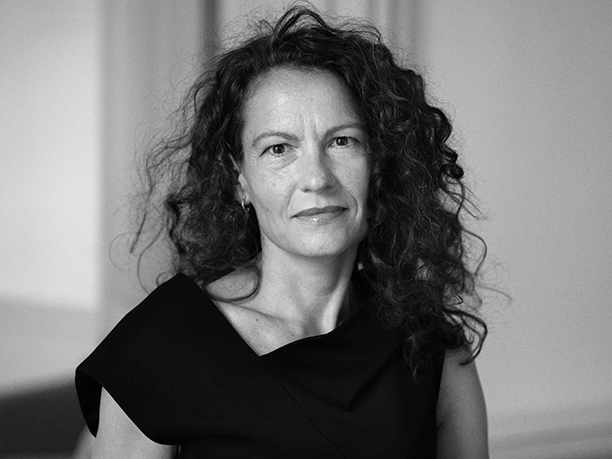Not state aid
On 30 May the Danish Parliament passed a bill on Certain Media Service Providers’ Contribution to Promote Danish Culture (the Act on Cultural Contribution), with entry into force on 1 July. Prior to this, the Act had been adjusted somewhat to comply with the European Commission’s comments from early May.
The purpose of the Act is to introduce an obligation for VOD service providers to pay a cultural contribution to promote Danish culture.
Under the Act, providers of VOD services must make an annual payment to the Danish state of 2% (the ‘basic levy’) of their turnover in Denmark stemming from the VOD service, and an additional 3% (the ‘increased levy’) if the provider's investment in new Danish content is below 5%.
The levy will be collected annually by the Agency for Culture and Palaces based on VOD service providers’ statements of turnover in Denmark in the most recent calendar year. It will be due for the first time in 2025, based on the VOD service providers’ contributory turnover in Denmark for 2024.
In its decision of 25 July, after the entry into force of the Act, the European Commission determined that the Act does not constitute state aid. This is also in line with the Danish Ministry of Culture’s previous evaluation. However, the Act was notified to the Commission to ensure legal certainty. For example, the EU Commission finds it acceptable that the cultural contribution is structured in such a way that only part of the turnover is encompassed.
First, revenues generated from sports or news programmes are not encompassed.
The Commission finds in its decision that the exclusion of sports and news programmes does not fall under the categories of audiovisual content (films, series and documentaries) which the levy aims to support. Therefore, the exclusion of those programmes from the contributory turnover, even if they are made available through a VOD service, is “consistent with the levy’s objective to support the production of new Danish films, series, and documentaries”.
Secondly, revenues from linear programming services are excluded. It should be noted that the levy applies to broadcasters providing VOD services insofar as the revenues from the VOD services are concerned.
In its view in response to the consultation on the Act in February, Netflix, among others, had criticized the exclusion of linear programming services, and noted that the Act implies a discrimination of the VOD sector.
But the Commission finds in its decision that the exclusion of linear programming services “is also consistent with the underlying logic of the levy”. On this point the Commission refers to the information provided by Denmark that VOD services are not subject to the same content-related obligations as linear services, and that public-service broadcasters, which represent the large majority of linear viewing in Denmark, already have extensive obligations to invest in and broadcast Danish audiovisual content. Therefore, the Commission finds that their exclusion from the contributory turnover is “consistent with the levy’s objective to address the gap in the contribution to the production of Danish audiovisual content” between linear and VOD services.
Thirdly, revenues from the redistribution of other media service providers' VOD services are excluded from the contributory turnover.
The Commission finds in its decision that the exclusion of revenues generated through “the mere redistribution” of other VOD services from the contributory turnover “ensures that media service providers are not required to pay for revenues from services for which they do not have editorial responsibility and are not providers of within the meaning of the Act”. Further, “It also aims to avoid the double payment of the levy” for the same VOD service.
By this endorsement from the EU Commission, the Danish Act on Cultural Contribution can be upheld, and the payment can be collected for the first time in 2025.
Danish Act on Cultural Contribution accepted by the EU Commission:
- the Act does not constitute state aid
- it is acceptable that the cultural contribution is structured in such a way that only part of the turnover is encompassed
- exclusion of:
- sports or news programmes
- linear programming services
- redistribution of other media service providers’ VOD services
References:
- 2 February – 1 March 2024 hearing comments; see Netflix’ view on pages 38-43 (in Danish):
https://www.ft.dk/samling/20231/lovforslag/L159/bilag/1/2850383.pdf
- 2 May 2024 comments from the EU Commission (in Danish):
https://www.ft.dk/samling/20231/lovforslag/L159/spm/4/svar/2050451/2870353.pdf
- 25 May 2024 letter from the Danish Minister for Culture to the Parliament Culture Committee about state aid, among other things (in Danish):
https://www.ft.dk/samling/20231/lovforslag/L159/bilag/11/2873425.pdf
- Act on Certain Media Service Providers’ Contribution to Promote Danish Culture (the Act on Cultural Contribution) [Lov om visse medietjenesteudbyderes bidrag til fremme af dansk kultur (kulturbidragsloven)] as passed by the Parliament on 30 May 2024 (in Danish): https://www.ft.dk/ripdf/samling/20231/lovforslag/l159/20231_l159_som_vedtaget.pdf
- 25 July 2024 decision from the EU Commission (in English):
https://www.ft.dk/samling/20231/almdel/KUU/bilag/190/2904958.pdf
11 November 2024
Terese Foged
(This article was published in IRIS Newsletter (European Audiovisual Observatory, under the European Council)
